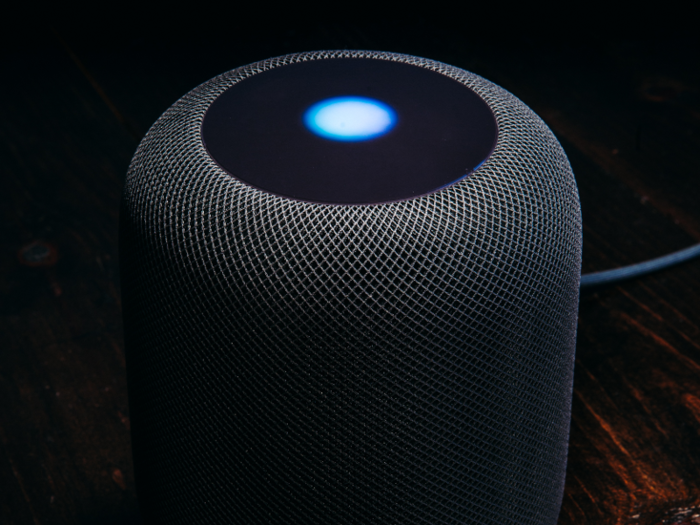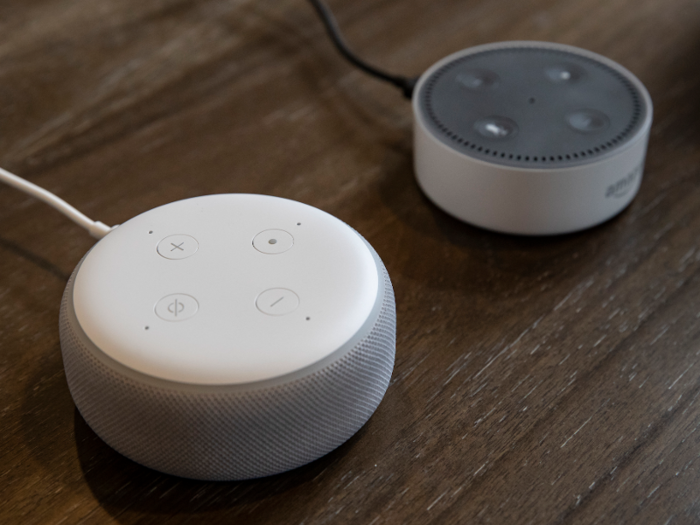- Home
- slideshows
- miscellaneous
- Amazon's head of devices says the smart home is still 'too complicated' - and working with major rivals like Apple and Google is the way to fix it
Amazon's head of devices says the smart home is still 'too complicated' - and working with major rivals like Apple and Google is the way to fix it
Making the smart home 'easier for everybody'

It's 'great' that Apple has an Echo rival

The cooperation between Amazon, Apple, and Google is yet another sign that the ways in which these companies are approaching voice assistants and the smart home market is vastly different than their respective strategies for the smartphone industry, where tech firms have traditionally competed to convince customers to choose one siloed platform over another.
The crux of what makes voice assistants and smart home devices appealing, comparatively, is the notion that they should work seamlessly and naturally across devices, whether you're an iPhone or Android loyalist.
As such, making the smart home work effortlessly may require companies like Amazon to rethink how it views its relationships with firms that offer competing products and services. Limp tells me, for example, about the recent launch of Apple services like Apple TV Plus and Apple Music on Amazon's own platforms, despite the fact that they're competitors. He also said it's "great" that Apple sells its own smart speaker that directly competes with the Echo.
"We brought Apple Music and most recently, Apple Podcasts, to Alexa, and that's been very successful," he said. "And even though Amazon has its own music service, that's fine. We give customers choice, and we want to do that. And we try to do that as many times as we can."
Alexa's reach is growing as privacy concerns continue

But Amazon, and other large tech firms like Google, have much more to worry about than just the competition and simplifying the experience of using their connected home products. Amazon and its rivals are expanding the capabilities of their smart home devices and voice assistants as concerns over privacy and security are higher than ever.
Amazon's Ring lineup in particular has been at the center of privacy-related controversies. Most recently, the camera security startup that Amazon acquired in 2018 came under scrutiny after hackers remotely accessed its cameras, enabling intruders to, in some cases, spy on children. Separately, the company has also been criticized for its partnerships with law enforcement.
When asked about whether Amazon has ramped up its investment in security and privacy, Limp said it's increased resources "across the board."
"For you to come back and shop at Amazon, you have to believe that Amazon is going to do the right thing by you as a customer," Limp said. "There's no reason you couldn't shop somewhere else tomorrow. And so we have to earn [your] trust every day."
Down the line, Amazon has ambitions to make Alexa significantly smarter than it is today. The company envisions a scenario in which Alexa could anticipate your needs before you even ask, such as offering to book an Uber ride or dinner table after you ask it about movie times, Miriam Daniel, Amazon's vice president of Echo and Alexa devices, previously told Business Insider.
In the meantime, Amazon certainly seems focused on putting Alexa in more corners of your home and the rest of your life, including the car. But for Amazon, developing new Alexa-enabled products comes down to one important factor: whether the company feels like it can meaningfully improve the user experience. That's a large part of why Amazon hasn't launched an Alexa-powered smartwatch even though it's released smart earbuds with its voice-enabled helper built-in, according to Limp.
"We'll make mistakes, you know, we have in the past, we certainly will in the future," said Limp. "But our job is to have a high quality filter on what we actually give out to the public. And hopefully most of them succeed."
Popular Right Now
Popular Keywords
Advertisement